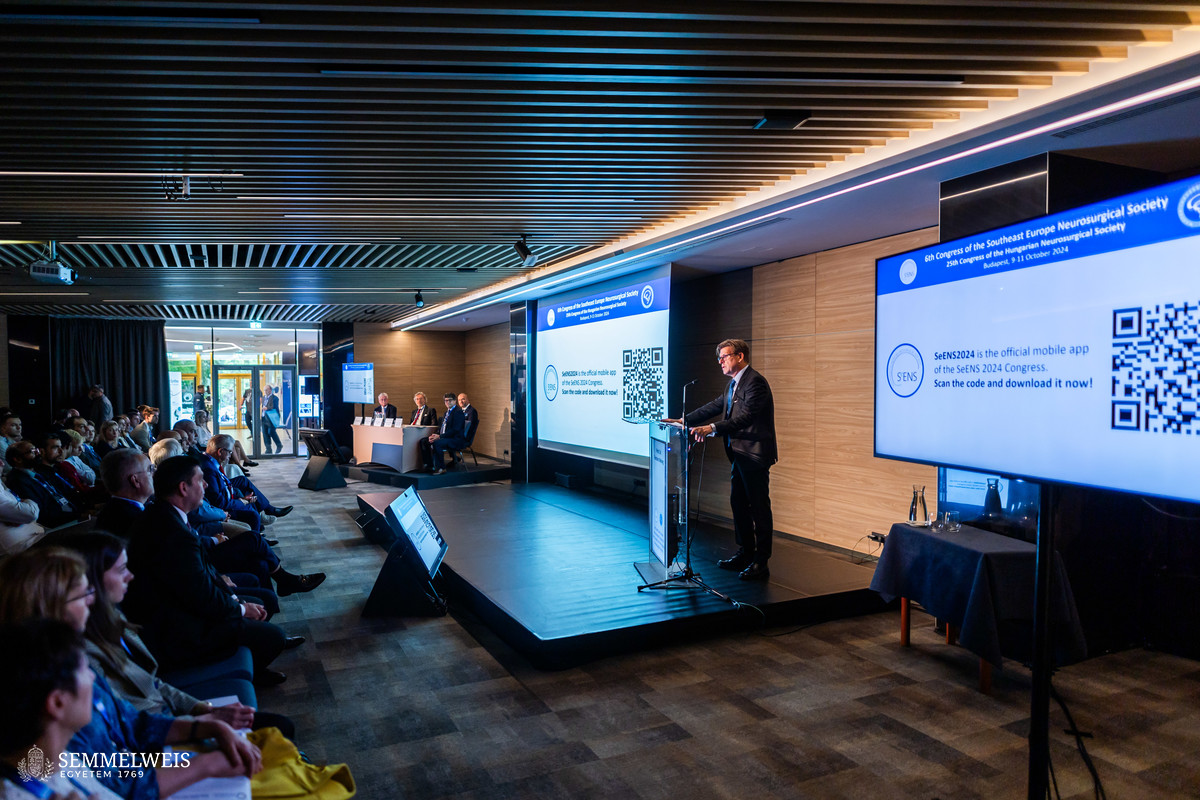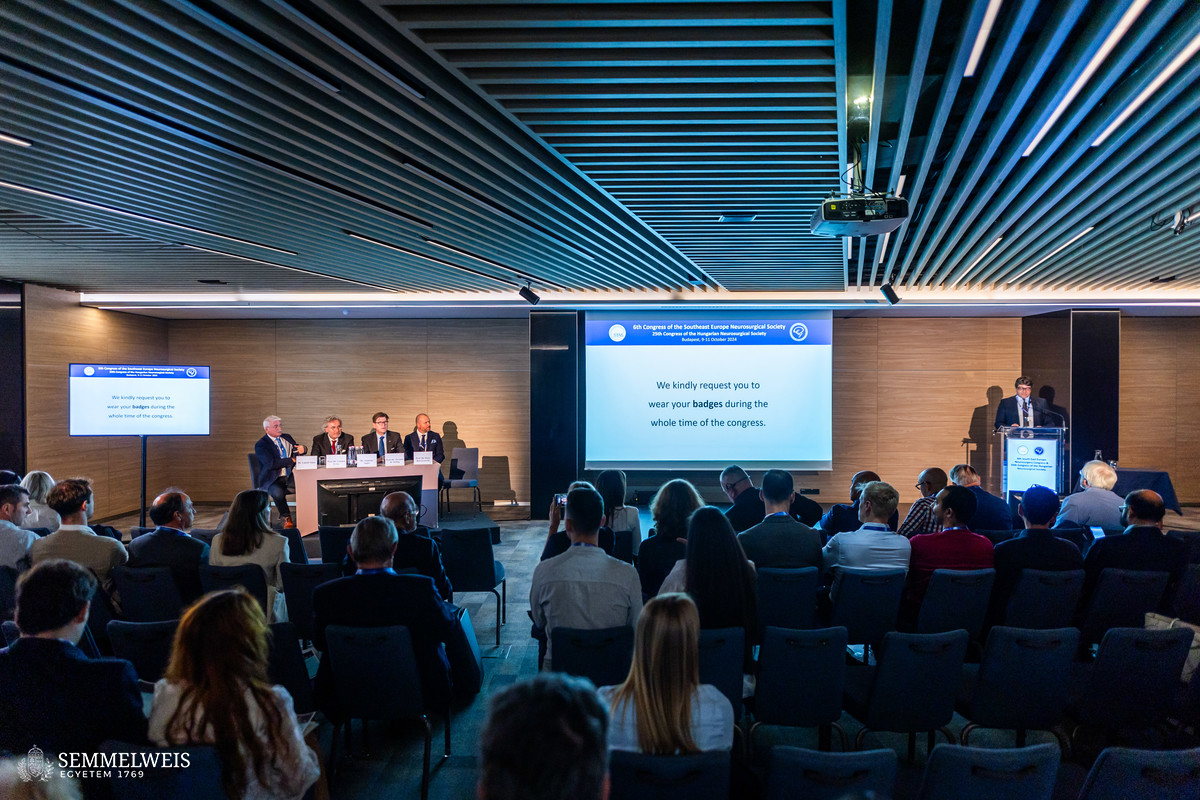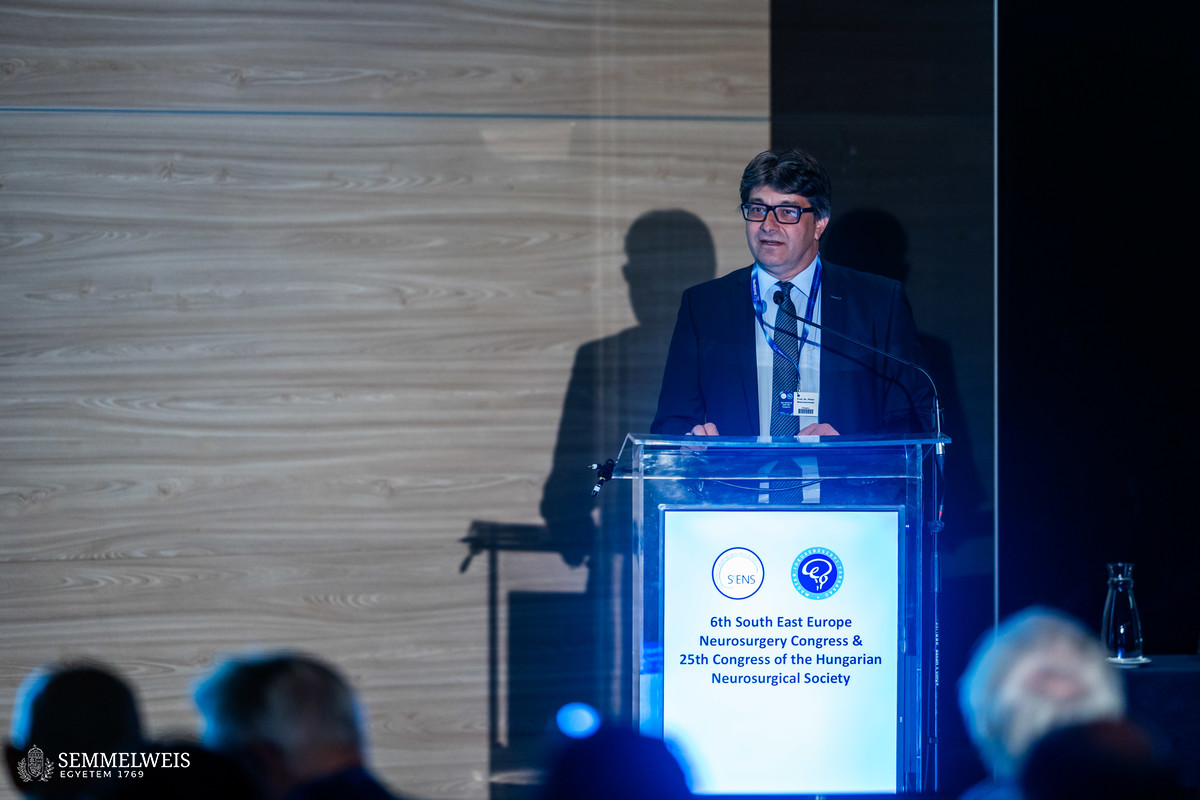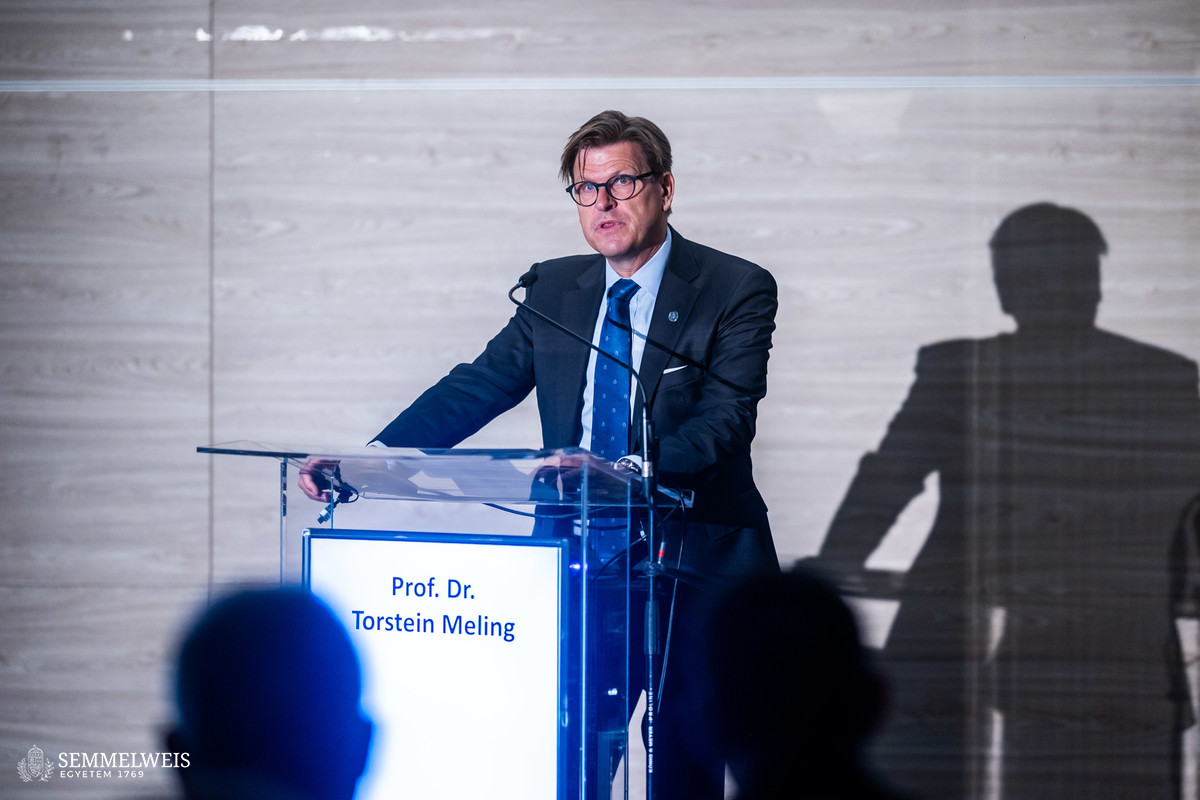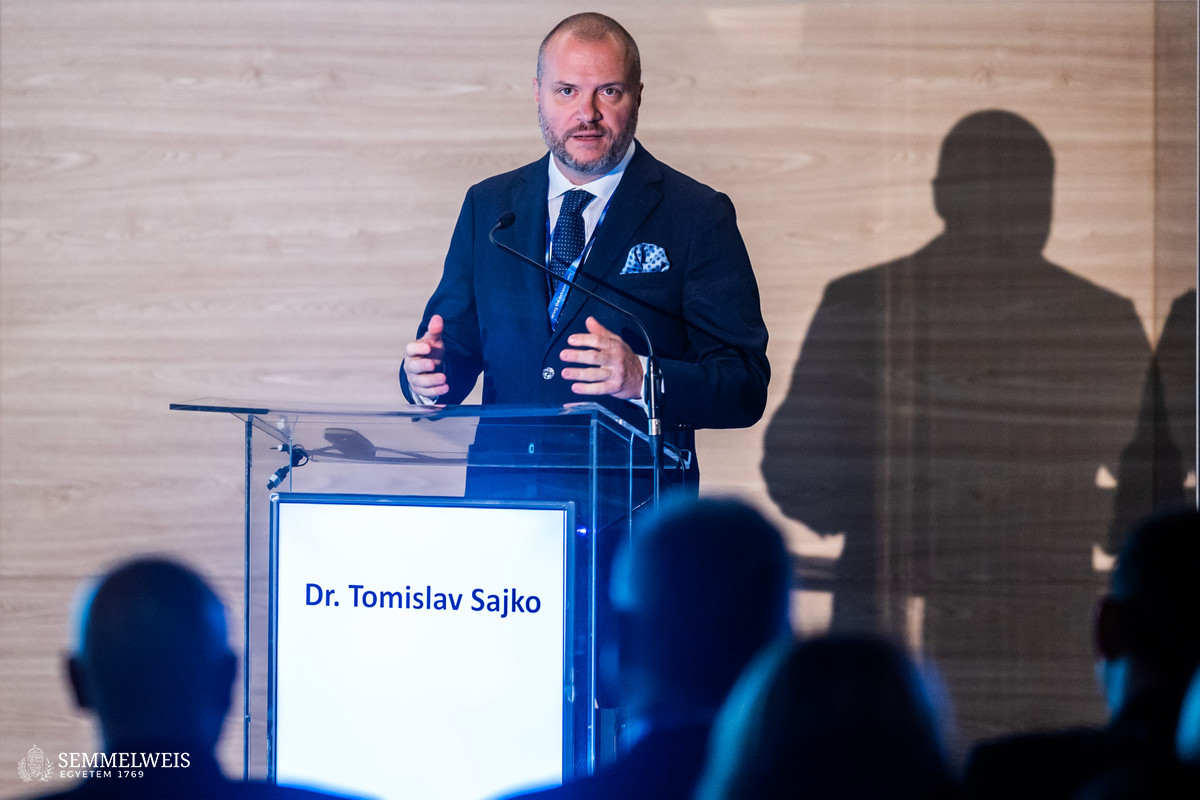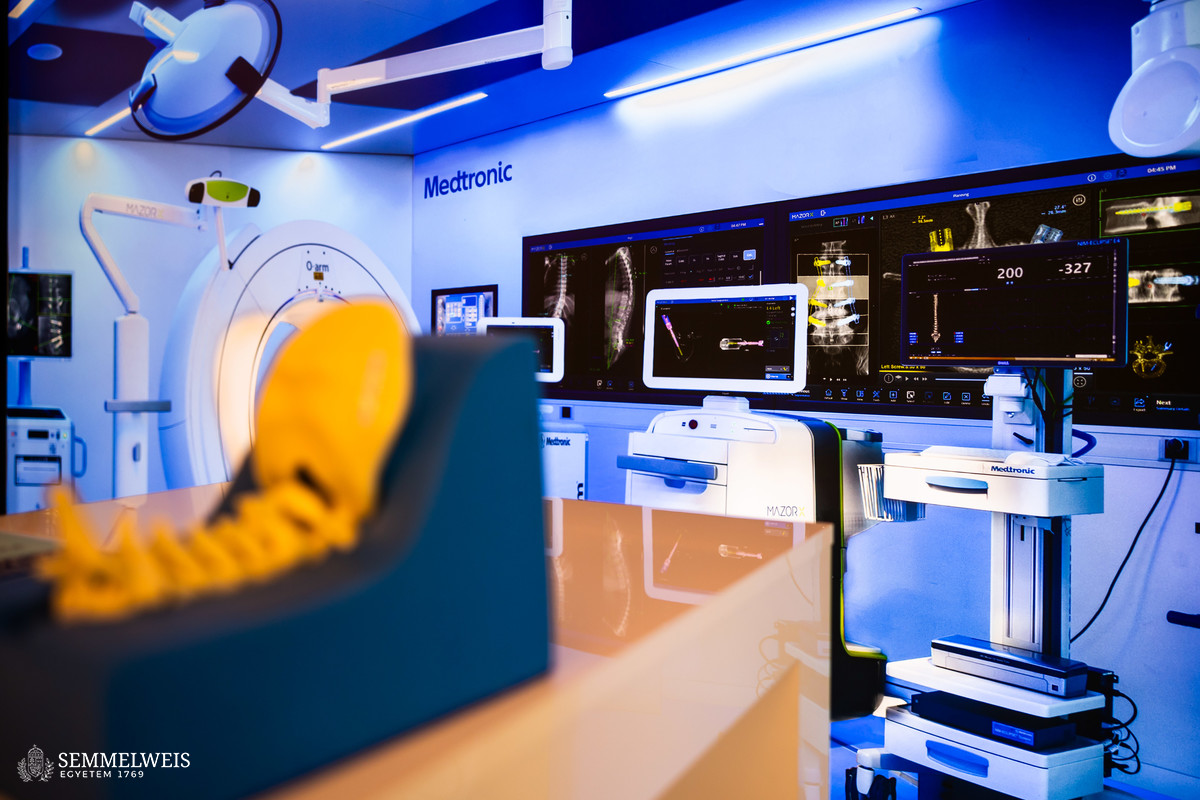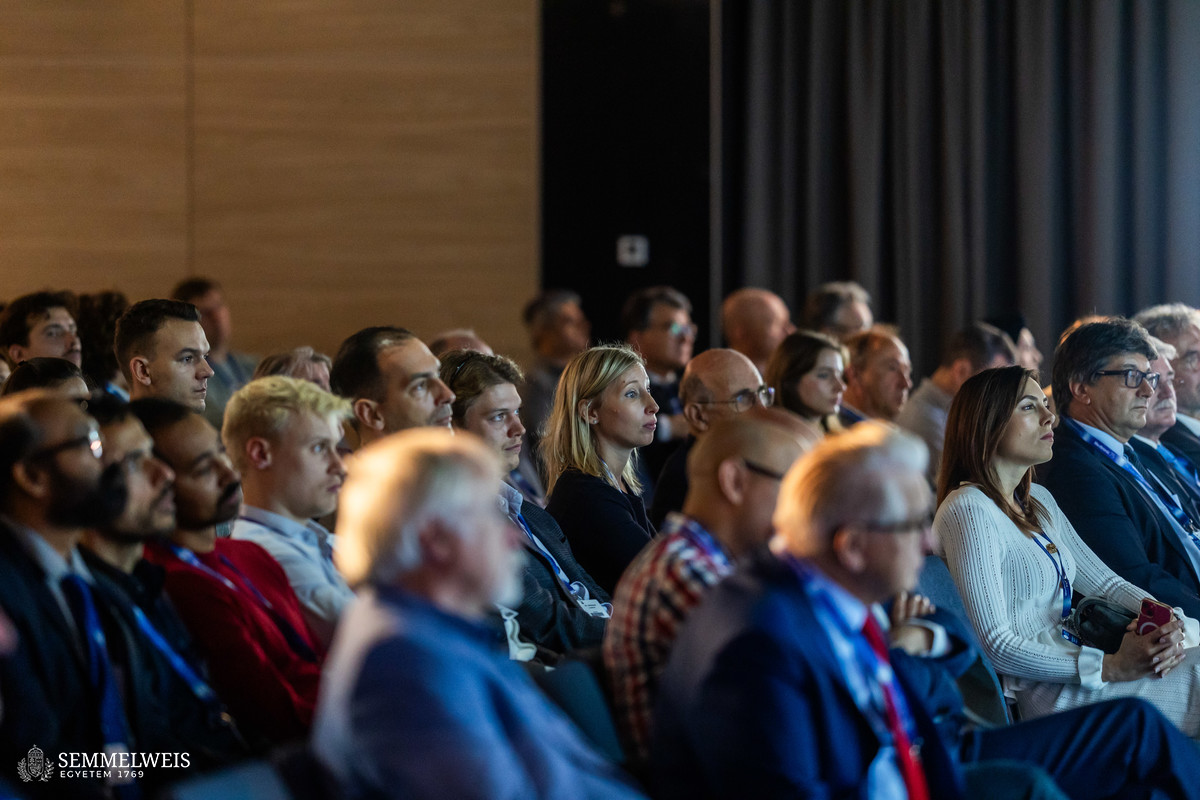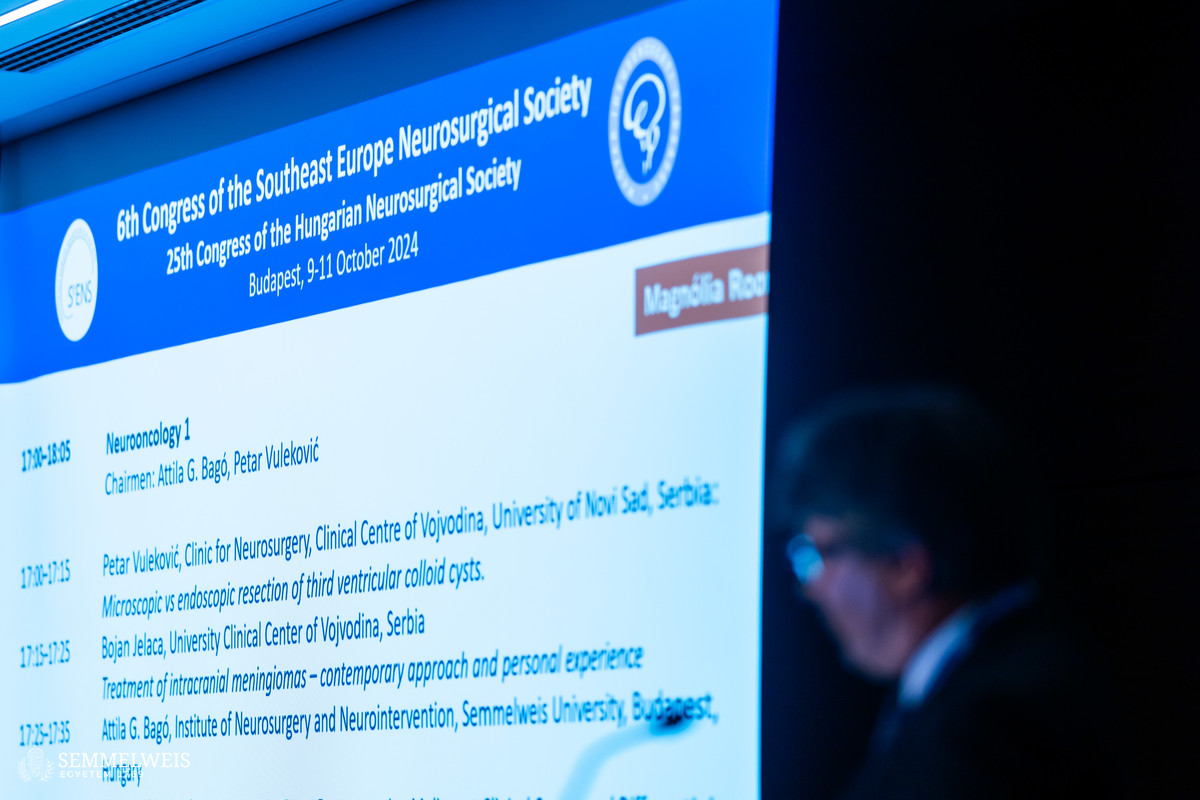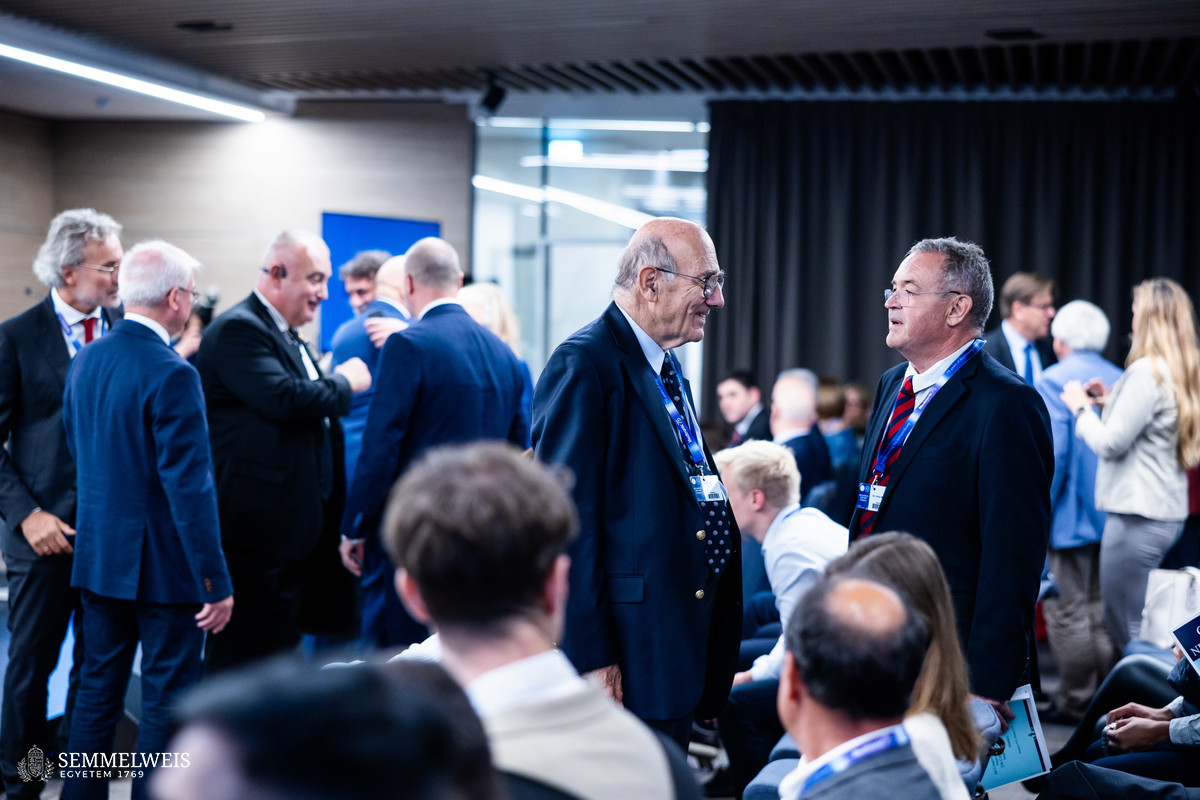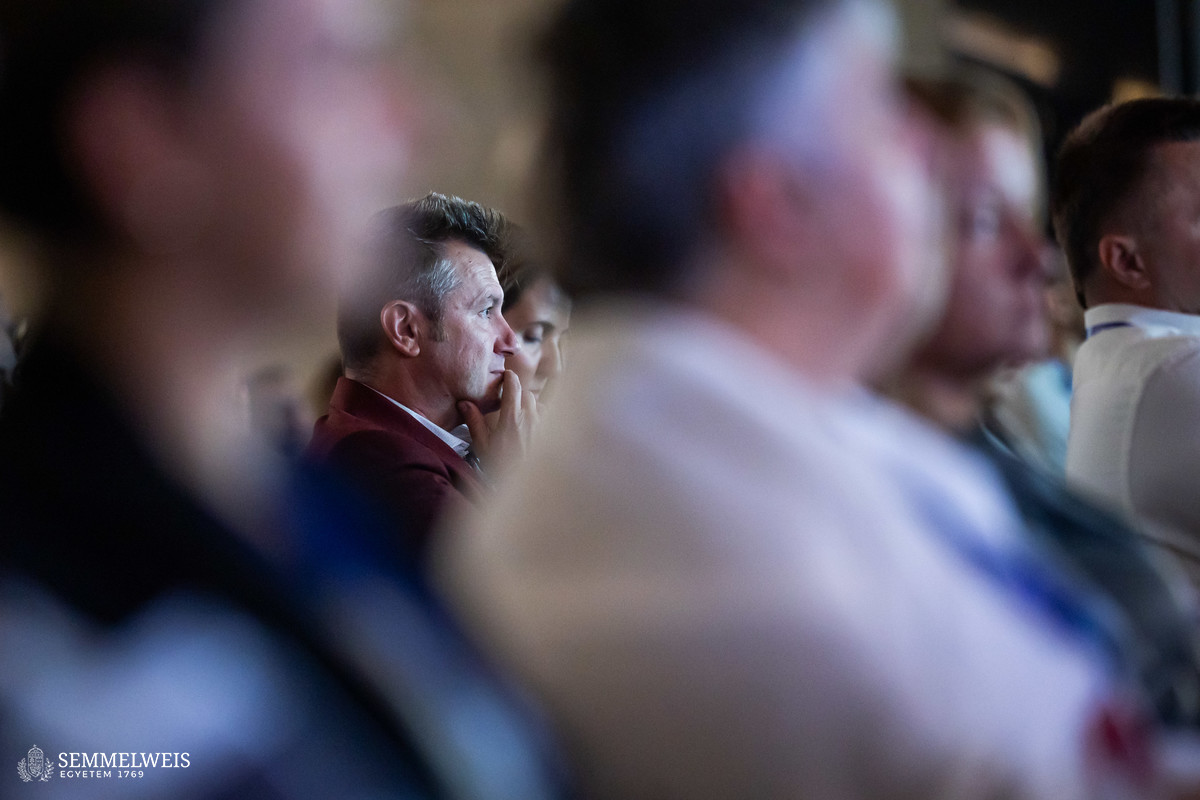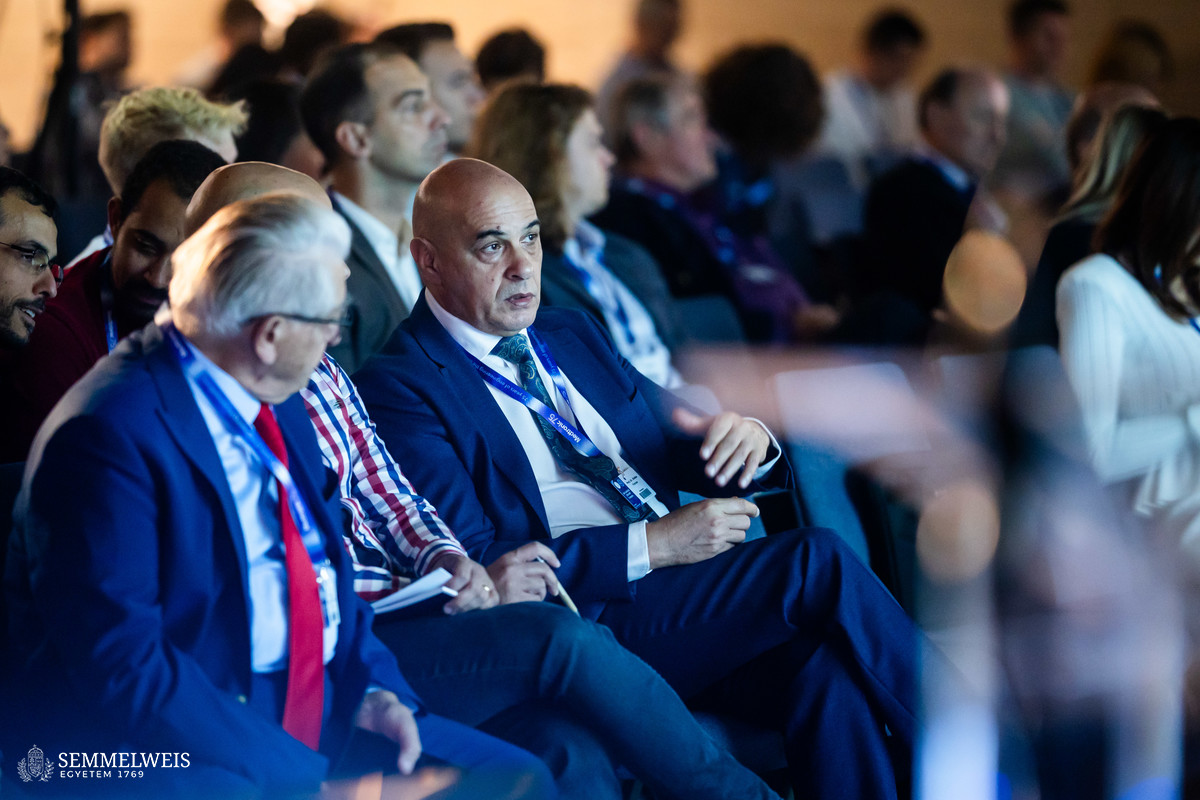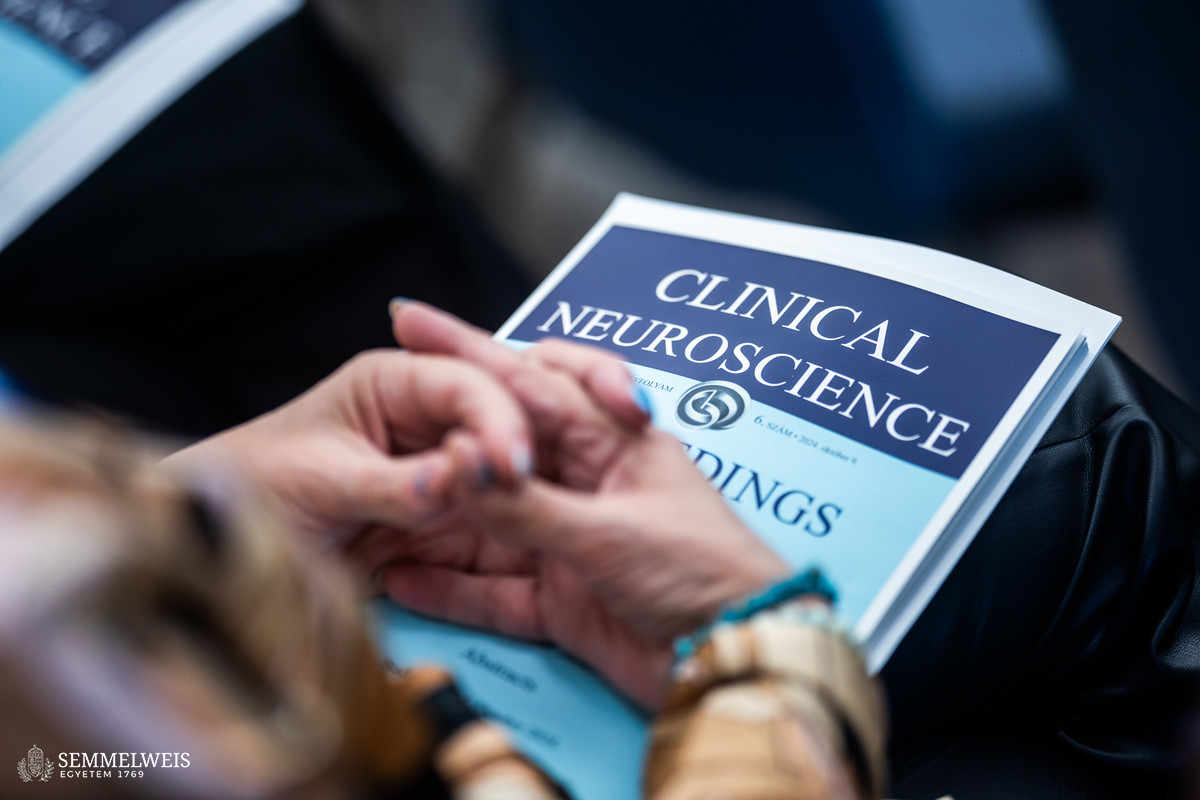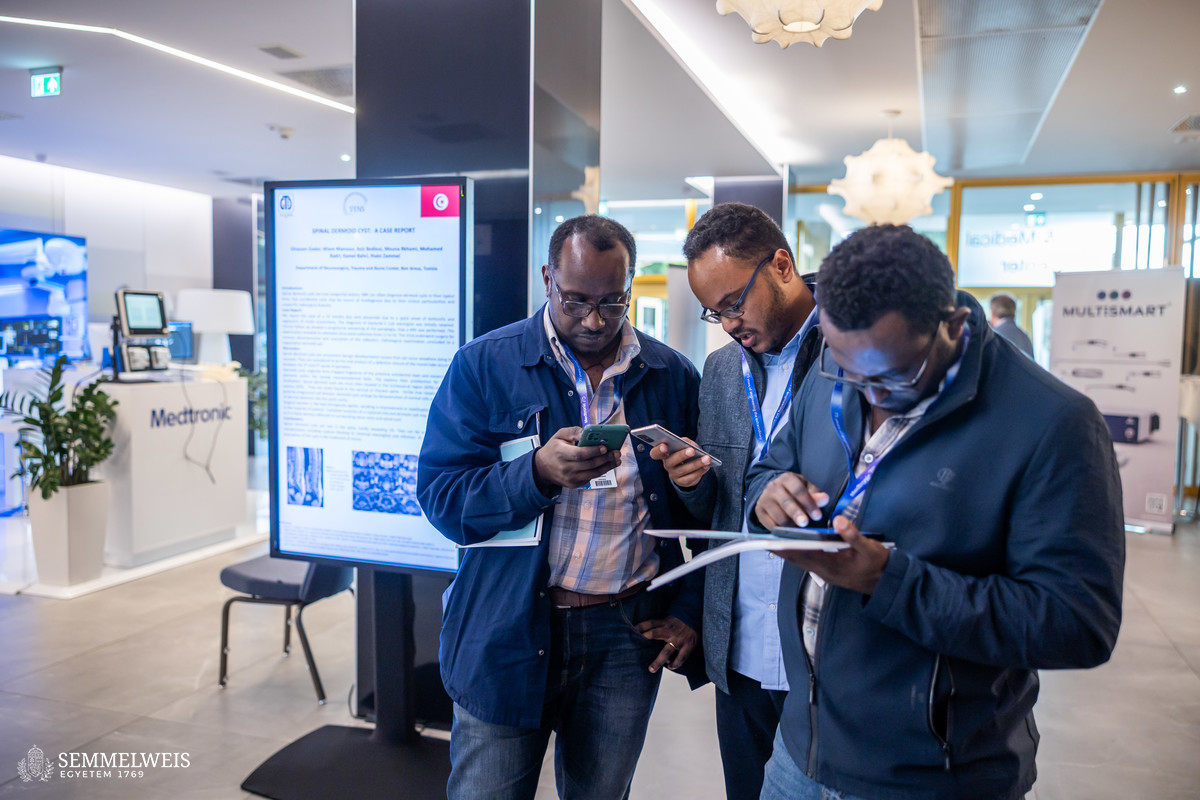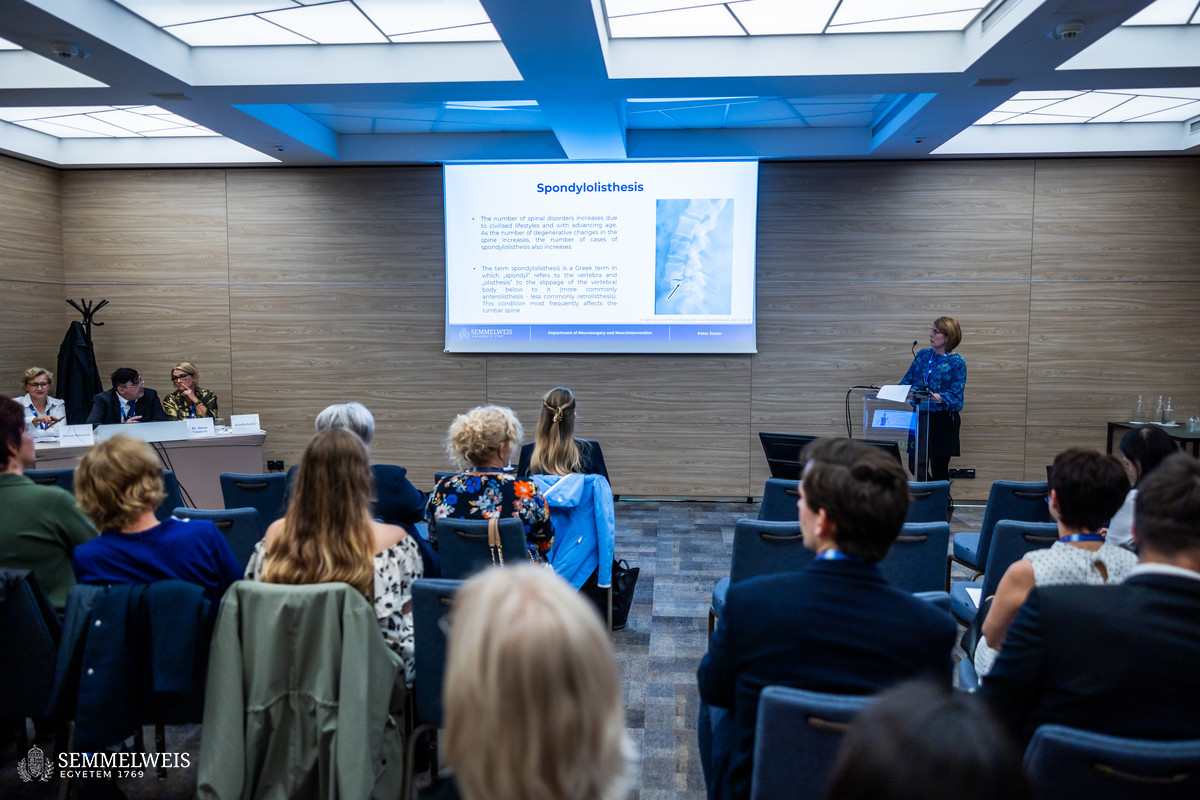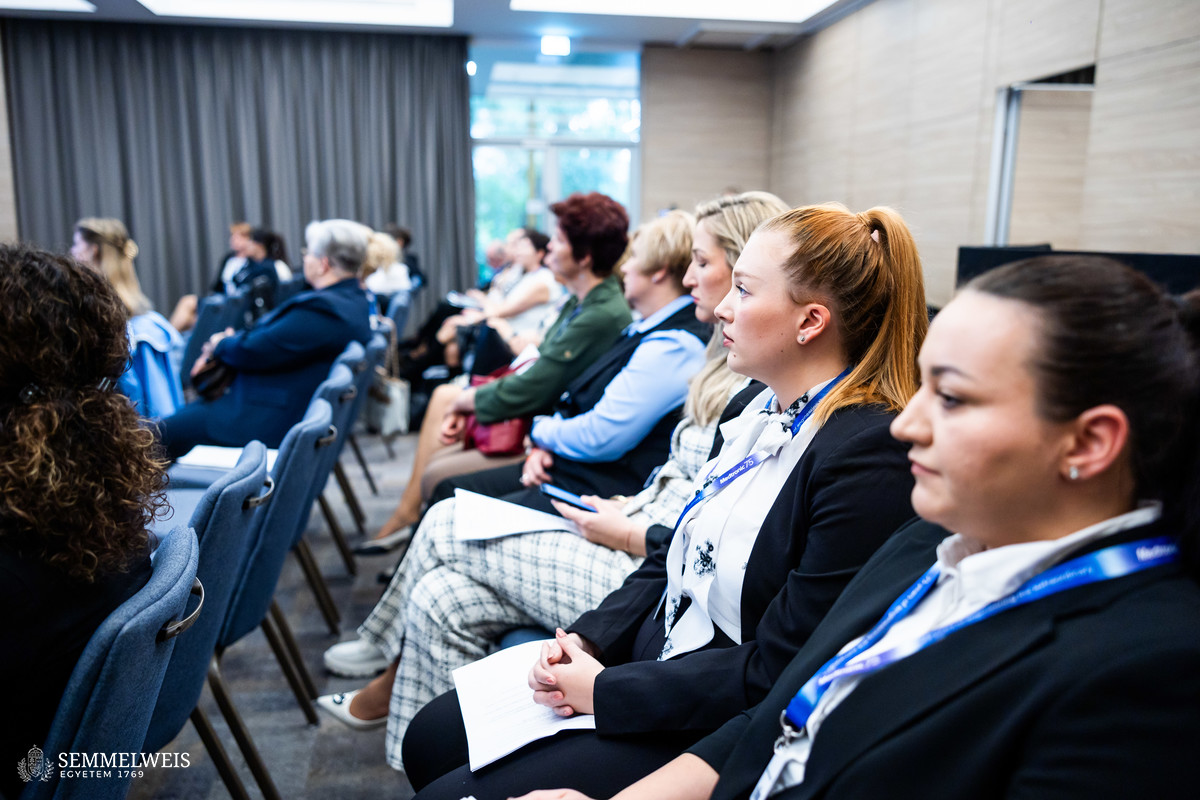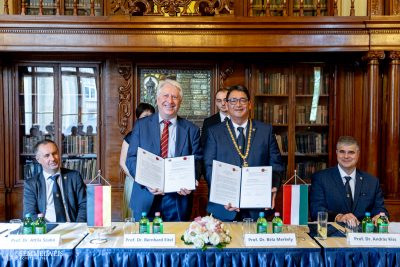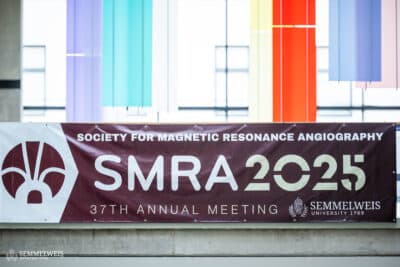The 6th Congress of the Southeast Europe Neurosurgical Society (SeENS) and the 25th Congress of the Hungarian Neurosurgical Society (MIT) were jointly held at the Ensana Thermal Hotel on Margaret Island. The congress was opened by Dr. Péter Banczerowski, Head of the Department of Neurosurgery at Semmelweis University. In his welcome speech, he stressed the importance of the joint organization of the event in strengthening international cooperation and emphasized that it would provide an opportunity for participants to share knowledge, learn from each other, and promote the development of neurosurgery. Dr. Péter Banczerowski welcomed Dr. Torstein R. Meling, President of the European Association of Neurosurgical Societies (EANS), and Dr. Tomislav Sajko, who also gave short speeches.
The Patron of the Congress was Dr. Tamás Freund, President of the Hungarian Academy of Sciences. Dr. Péter Banczerowski, Head of the Department of Neurosurgery at Semmelweis University and Dr. Tomislav Sajko, President of the Southeast Europe Neurosurgical Society served as Congress Presidents. Dr. Ihsan Solaroglu, Professor at the Department of Neurosurgery, Koç University, Istanbul, and Dr. László Novák, President of the Hungarian Neurosurgical Society, were the Co-Chairs of the Scientific Committee. Dr. Loránd Erőss, Director of Semmelweis University’s Department of Neurosurgery and Neurointervention, and Dr. László Sipos, Clinical Lead at the Craniocerebral and Vascular Neurosurgery Ward, were the Presidents of the local organizing committee.
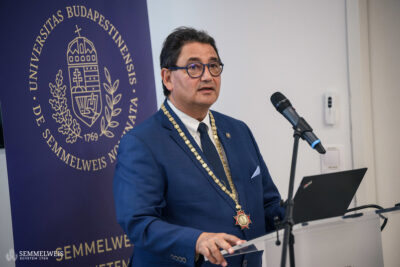 At the opening ceremony held in the evening of October 9, Dr. Béla Merkely, Rector of Semmelweis University, spoke about the importance of joint scientific work, the role of cooperation in the development of science, and promoting the entry of a new generation into the international scientific world. The congress provides an excellent opportunity for all this, and it also allows internationally renowned researchers in the field to present their latest scientific achievements in Hungary. The strengthening of international professional cooperation can not only stimulate the Hungarian scientific community, but also helps the development of neurosurgery as a whole, he stressed.
At the opening ceremony held in the evening of October 9, Dr. Béla Merkely, Rector of Semmelweis University, spoke about the importance of joint scientific work, the role of cooperation in the development of science, and promoting the entry of a new generation into the international scientific world. The congress provides an excellent opportunity for all this, and it also allows internationally renowned researchers in the field to present their latest scientific achievements in Hungary. The strengthening of international professional cooperation can not only stimulate the Hungarian scientific community, but also helps the development of neurosurgery as a whole, he stressed.
As everyone here knows, medical and health sciences are among the fastest-growing disciplines in the world, with the body of knowledge available doubling every year or two. Even among these, neuroscience is one of the most innovative fields. – Dr. Béla Merkely
He added that the leading institution in the field in Hungary, the National Institute of Mental Health, Neurology and Neurosurgery (OMIII) and its neurology, neurointerventional, and neurosurgical services joined Semmelweis University in March this year, and that – with the foundation of the Department of Neurosurgery and Neurointervention – the specialty would receive even greater emphasis in the curriculum.
Presentations at the 6th SeENS and 25th MIT Congress focused on a number of areas of importance to neurosurgery: spine, pituitary, neurooncology, vascular, trauma, skull base, neuroradiology, periphery, pediatric neurosurgery, and radiosurgery; and there were also special sessions for nurses. In addition to the thematic sessions, the program included plenary sessions and keynote lectures, thematic company symposia, and poster presentations. In general, the presentations were held in three parallel sessions. Special emphasis was placed on presenting the latest clinical research and innovations, and on the professional participation of young researchers and doctoral students, for whom special sessions, workshops, and poster presentations were organized. This gave them the opportunity to present their own research, exchange experiences with international colleagues, and participate in the scientific community.
The Hungarian Neurosurgical Society (MIT) was founded in 1966 with the aim of developing neurosurgery in Hungary, increasing the professional and scientific knowledge of its members, promoting their continuous further training, and providing them with education in medical ethics. Among others, MIT’s mission is to promote Hungarian research results as extensively as possible both at home and abroad. Over the years, MIT has gained considerable national and international recognition. The Southeast Europe Neurosurgical Society (SeENS) is a professional, nonprofit organization founded in 2012 to stimulate cooperation and exchange of experiences between neurosurgeons in the region, thereby improving neurosurgical care, training, and research in Southeast Europe. The joint organization of the congress is the result of strong professional links and close cooperation between the two societies.
Dr. Balázs Csizmadia
Photos by Bálint Barta – Semmelweis University
